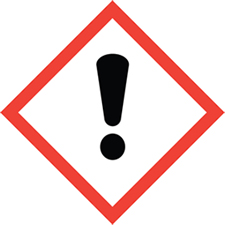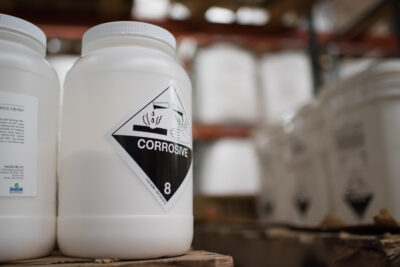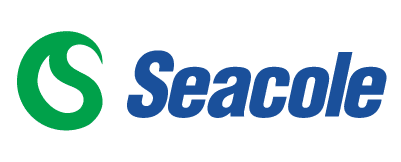When handling hazardous materials, understanding and identifying safety signs is of critical importance. You should be acutely aware of what these signs mean and how to use them to preserve your safety, especially if you work in a facility where hazardous materials or other dangers are present.
To help our customers understand the hazards that may be contained in any particular product, Seacole uses the OSHA Hazard Communication Standard (HCS) pictograms on product labels. These are universal symbols that help users understand the chemical hazards to which they may be exposed.
Below is a list of some of the pictograms users may find on Seacole products and what they represent.

1. Health Hazard
The health hazard pictogram indicates a product contains chemicals that may cause health effects in humans, including cancer, gene mutation, reproductive health effects, respiratory sensitivity, and organ toxicity.

2. Flame
The flame symbol alerts users that a chemical is flammable. It can also indicate a chemical may be pyrophoric, self-heating, self-reactive, or emit flammable gas. It may also indicate a chemical includes organic peroxides.

3. Exclamation Mark
An exclamation mark on a product label indicates a chemical is acutely toxic or can cause narcotic effects. It also indicates a chemical may cause skin, eye, or respiratory irritation.

4. Corrosion
The corrosion pictograph warns users that a chemical may cause burns and skin corrosion and could be harmful to eyes. It also indicates a chemical is corrosive to metals.

5. Oxidizers
The flame over a circle symbol indicates a product contains oxidizers.

6. Skull and Crossbones
The skull and crossbones indicates a chemical may be acutely toxic to humans.
These pictographs demonstrate that all chemicals should be treated with care. Depending on the chemical, it may be appropriate to wear gloves, eye protection, a respirator, or a full hazmat suit. Seacole is required to provide a Safety Data Sheet for each hazardous chemical to its users to communicate these hazards. Regular safety training can ensure all employees understand how to use chemical products safely.
To learn more about the responsible distribution and warehousing of hazardous chemicals, contact the experts at Seacole today.





